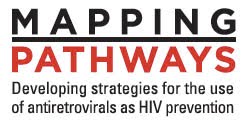via News Medical
 Leading AIDS experts at Johns Hopkins and other institutions around the world have issued new guidelines to promote entry into and retention in HIV care, as well as adherence to HIV treatment, drawn from the results of 325 studies conducted with tens of thousands of people infected with HIV, the virus that causes AIDS.
Leading AIDS experts at Johns Hopkins and other institutions around the world have issued new guidelines to promote entry into and retention in HIV care, as well as adherence to HIV treatment, drawn from the results of 325 studies conducted with tens of thousands of people infected with HIV, the virus that causes AIDS.
However, experts worry that barely two-thirds of Americans with HIV disease, some 69 percent, have ever used potent antiretroviral drug therapy, or ART, to keep viral levels in the blood low. Still fewer, they say, 59 percent, continue their drug therapy, and less than a third, or 28 percent, have achieved near total viral suppression to keep the disease in check by carefully complying with treatment regimens and getting regular tests for viral load.
"Clearly, there is lots of room for improvement in how we, as care providers, can get new patients into treatment and help them adhere to the often strict drug regimens needed to suppress the viral disease and prevent drug resistance," says guidelines co-author and infectious disease specialist Larry W. Chang, M.D., M.P.H.
The need is urgent, he says, because other research has shown that patients who miss follow-up medical
visits within the first year after they begin outpatient drug treatment for HIV infection tend to be out of compliance with regimens, and, over the long term, die at twice the rate of those who keep their appointments.
Chang, an assistant professor at the Johns Hopkins University School of Medicine, was one of 31 experts worldwide, including three faculty members at Johns Hopkins, who drafted the guidelines on behalf of the International Association of Physician in AIDS Care, or IAPAC.
The guidelines were published online this week in the Annals of Internal Medicine and the publication was timed to coincide with the 19th annual Conference on Retroviruses and Opportunistic Infections in Seattle.
Read the Rest.
[Content that is linked from other sources is for informational purposes and should not construe a Mapping Pathways position.]
The guidelines are believed to be the first ever to focus exclusively on how best to get those newly diagnosed with HIV into treatment plans and to help them adhere to lifelong drug and check-up regimens.
Some 50,000 Americans each year are diagnosed with the potentially deadly, but now-treatable infection, and more than a million Americans already are known to be HIV positive. However, experts worry that barely two-thirds of Americans with HIV disease, some 69 percent, have ever used potent antiretroviral drug therapy, or ART, to keep viral levels in the blood low. Still fewer, they say, 59 percent, continue their drug therapy, and less than a third, or 28 percent, have achieved near total viral suppression to keep the disease in check by carefully complying with treatment regimens and getting regular tests for viral load.
"Clearly, there is lots of room for improvement in how we, as care providers, can get new patients into treatment and help them adhere to the often strict drug regimens needed to suppress the viral disease and prevent drug resistance," says guidelines co-author and infectious disease specialist Larry W. Chang, M.D., M.P.H.
The need is urgent, he says, because other research has shown that patients who miss follow-up medical
visits within the first year after they begin outpatient drug treatment for HIV infection tend to be out of compliance with regimens, and, over the long term, die at twice the rate of those who keep their appointments.
Chang, an assistant professor at the Johns Hopkins University School of Medicine, was one of 31 experts worldwide, including three faculty members at Johns Hopkins, who drafted the guidelines on behalf of the International Association of Physician in AIDS Care, or IAPAC.
The guidelines were published online this week in the Annals of Internal Medicine and the publication was timed to coincide with the 19th annual Conference on Retroviruses and Opportunistic Infections in Seattle.
Read the Rest.
[Content that is linked from other sources is for informational purposes and should not construe a Mapping Pathways position.]

No comments:
Post a Comment